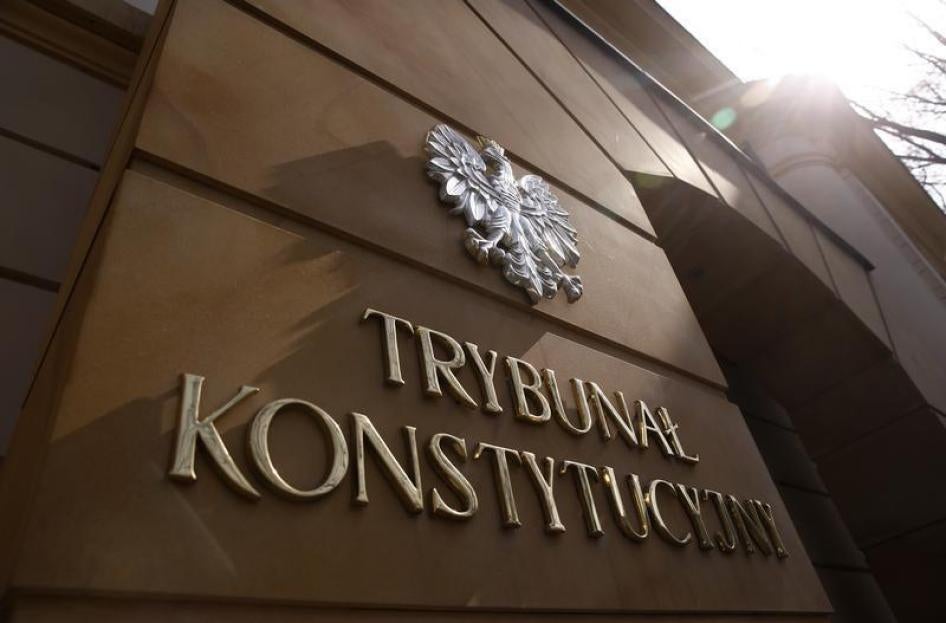The European Commission on Wednesday gave Poland three months to implement a set of recommendations to correct the “systemic threat to the rule of law” in that country.
The step follows worrying moves by Poland’s ruling Law and Justice Party to undermine the independence of Poland’s highest court, the Constitution Tribunal, and increase executive controls over judges. This led the commission to trigger, in January, for the first time ever, its “rule of law framework,” a mechanism created in 2014 to better address measures taken by governments of European Union member countries that threaten basic rights.
The European Commission’s decision on Wednesday confirms what Polish non-governmental organizations (NGOs) have been saying: That new laws affecting the constitutional tribunal, passed earlier this month, didn’t go far enough, and do not correct the problems identified by the Council of Europe’s top legal advisory body, the Venice Commission. While the European Commission’s recommendations focus on the court, due to its crucial role in protecting human rights in Poland, national NGOs also point to serious concerns about limits on media freedom and how the new anti-terrorism law increases the government’s surveillance powers.
These bold steps on Poland contrast with the commission’s inability or unwillingness to forcefully address pressing human rights issues in other EU countries. The commission has largely ignored Hungary’s increasing hostility towards media and civil society and its violence and aggression towards refugees, for example.
The commission said it stands ready to trigger the ‘Article 7 Procedure’ if Poland keeps ignoring its calls – a move which could ultimately lead to suspending Poland’s EU voting rights. At a time of post-Brexit confusion, and as Europe’s values are more than ever under threat, it’s the responsibility of the commission to ensure that upholding rights is non-negotiable within the EU. It should be as true for Poland as for any other EU country.










